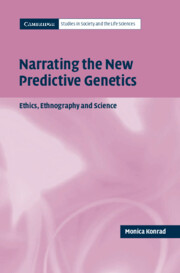1 - Thinking futures
Published online by Cambridge University Press: 15 December 2009
Summary
Lives to come
In 1994 the late French novelist and literary translator Elizabeth Gille published a remarkable autobiography about temporal dating and anticipated death. Realising her diagnosis of terminal cancer leaves limited creative writing time, Gille pens Le Crabe sur la Banquette Arrière, the story of a counterpart heroine who tries to put her remaining days of declining health to the back of her mind. Friends, colleagues, family and even strangers all have other plans, however. Meaning well, they rally round this ‘sick’ relation offering clippings from popular magazines on the latest ‘miracle remedies’; or they collect groceries suggesting she eat a ‘healthy’ fish diet, cook these recipes, do those exercises and so on. To her frustration Gille's heroine is reminded continuously by others how her designated sickness role, as enforced regimen of care, predates her impending death. As the author herself remarked in the advanced stages of her illness, these kinship relations are however misplaced conceptions. ‘The date of your deaths remains uncertain, but mine is already set, more or less’, she told close friends. ‘That does not prevent me from living. Or from laughing’.
It is no accident that the recent ascendancy of new genetic testing technologies primarily in the wealthiest markets of the late industrialised world has spawned both a sceptical and optimistic literature about the ‘dream’ of the human genome and of future ‘lives to come’ (see Lewontin 2000; Kitcher 1996).
- Type
- Chapter
- Information
- Narrating the New Predictive GeneticsEthics, Ethnography and Science, pp. 9 - 28Publisher: Cambridge University PressPrint publication year: 2005

